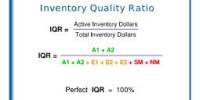The financial plan refers to the projection of future financial course of action to be carried for the efficient execution of operating plans and effective accomplishment of the corporate objective. The financial plan begins with the preparation of strategic plans that in turn guides the formulation of operating plans and budgets. The financial plan provides a roadmap for guiding, coordinating and controlling a firm’s financial activities in order to achieve the objectives.
Characteristics of a Sound Financial Plan:
A Financial manager should consider the following factors while finalising a financial plan:
- Simplicity:
A financial plan should be so simple that it may be easily understood even by a layman. A complicated financial structure creates complications and confusion. It is also easy to work out a simple financial plan.
- Based on Clear-cut Objectives:
The planner should always keep in mind not only the needs of ‘today’ but also the needs of ‘tomorrow’ so that a sound financial plan may be formed. It should aim to procure funds at the lowest cost so that the profitability of the business is improved.
- Less Dependence on Outside Sources:
A long-term financial planning should aim to reduce dependence on outside sources. Effective use of capital is as much necessary as its procurement. The generation of own funds is the way of financial operations. There should be a proper balance between the fixed capital and the working capital.
- Flexibility:
The financial plan should not be rigid. There should be a degree of flexibility so that financial plan can be adopted with a minimum of delay to meet changing conditions in the future. Flexibility in a plan will be helpful in coping with the demands of the future.
- Solvency and Liquidity:
Financial planning should ensure the solvency and liquidity of the enterprise. Solvency requires that short-term and long-term payments should be made on dates when these are due. The degree of liquidity to be maintained is determined by the size of the company, its age, its credit status, the nature of its operations, the rate of turnover etc.
- Cost:
The cost of raising capital is an important consideration in selecting a financial plan. The selection of various sources should be such that the cost burden should be minimum. As and when possible interest-bearing securities should be returned so that this burden is reduced.
- Profitability:
A financial plan should adjust various securities in such a way that the profitability of the enterprise is not adversely affected. The interest-bearing securities and other liabilities should be so adjusted that business is able to improve its profitability.
Information Source;
















